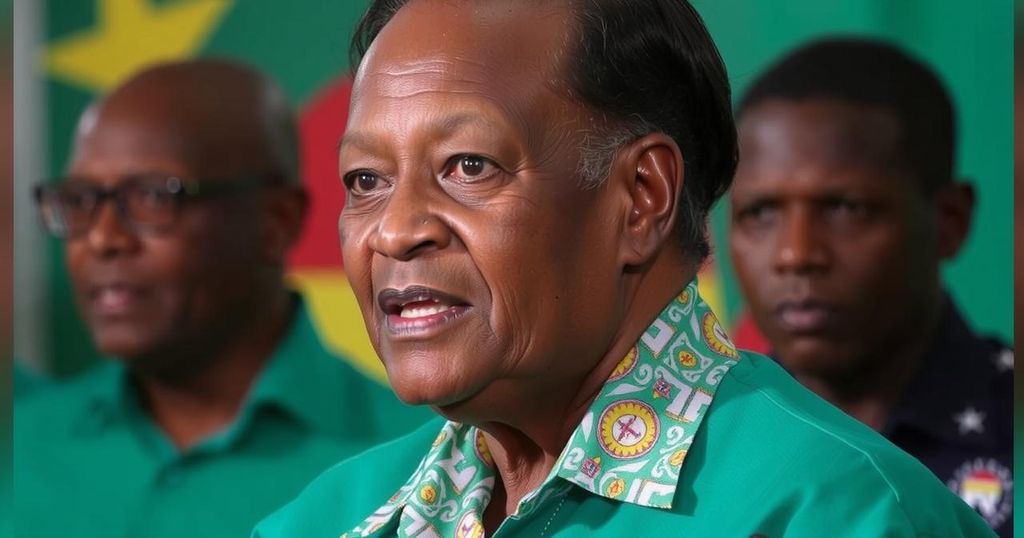Navigating Political Turmoil: President-Elect Chapo’s Challenges in Mozambique
Mozambique’s President-elect Daniel Chapo faces significant opposition following a disputed election result, resulting in ongoing protests and political instability. Despite plans for reconciliation, Chapo’s leadership will need to navigate potential infighting within the ruling party and address the demands of discontented opposition supporters to stabilize the nation’s economy and governance.
In Mozambique, President-elect Daniel Chapo is confronting a significant challenge in navigating the aftermath of the contentious October 9 elections. Following a ruling from the Constitutional Council on December 23, which affirmed Chapo’s victory over opposition candidate Venancio Mondlane, unrest has resurfaced. Mondlane’s supporters responded to the ruling with protests, underscoring widespread allegations of electoral manipulation. As Mozambique grapples with this political instability, Chapo is urged to pursue reconciliation with Mondlane, despite the risks of potential factionalism within the ruling Frelimo party. In light of these tensions, Chapo’s plans for a dialogue initiative after his inauguration on January 15 will be crucial in determining the nation’s path forward.
Mozambique’s current political landscape is heavily influenced by the ideological divisions between the ruling Frelimo party and its opposition, which has escalated following the disputed general election. The domestic unrest following the Constitutional Council’s confirmation of Chapo’s election results reflects not only the discontent of opposition supporters but also the fragile nature of governance in Mozambique. Addressing these issues promptly is essential for stabilizing both the political atmosphere and the economy that is prone to disruption amid this conflict.
The political situation in Mozambique has long been characterized by tensions between the ruling Frelimo party and opposition groups. The October 9 general elections were marred by allegations of fraud and manipulation, leading to a disputed outcome that many observers deemed unfair. Following the election, President-elect Daniel Chapo faces mounting pressure not only to govern but also to initiate a dialogue aimed at reconciling differences with the opposition, particularly with Venancio Mondlane. The background context highlights the delicate balance required to foster stability in Mozambique during this crisis.
In summary, as Mozambique moves beyond its controversial elections, President-elect Daniel Chapo’s leadership will be instrumental in addressing the arising challenges. The potential for reconciliation with opposition leader Venancio Mondlane could determine the country’s political stability. However, effective management of the internal dynamics within the Frelimo party and appeasing the demands of those who claim electoral injustice will be crucial. The upcoming dialogue initiative post-inauguration will serve as a pivotal moment in Mozambique’s journey towards a more stable political future.
Original Source: worldview.stratfor.com




Post Comment